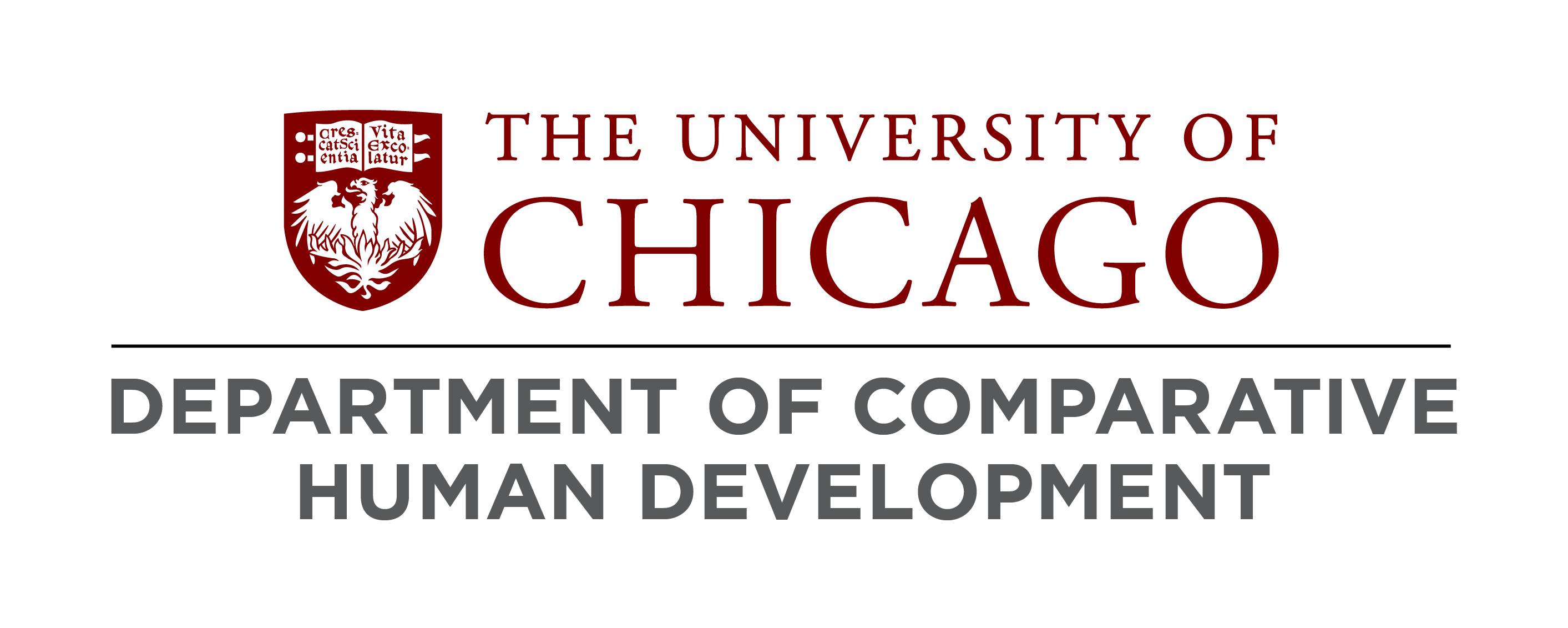
Professor Mateo is an Associate Professor, as well as the Committee on Evolutionary Biology and the College. She received her doctorate in the field of Biopsychology, Evolution of Animal Behavior from the University of Michigan in 1995. Dr. Mateo was a Research Associate with the Department of Psychology at Cornell University (1996-2002).
She and her students study developmental and biological mechanisms of adaptive behaviors that enhance survival and reproduction in species-typical environments. In particular, they investigate the reciprocal interactions among social, hormonal and genetic processes and how they differentially affect behavior depending on ecological and social contexts. They use comparative approaches in the field, in the lab and in other settings, studying human and non-human primates, other mammals (e.g. lions, dolphins, and ground-dwelling squirrels) and birds.
Prof. Mateo uses an epigenetic approach to development, in which ontogeny is viewed as a series of interactions between an organism and its environment (sensu Gottlieb’s probabilistic epigenesis). She also views development as a series of ontogenetic adaptations, with each stage functionally complete for that period of development and contributing to later stages. These two approaches (epigenetic and adaptive) to the study of development are complementary rather than competitive, however, as their interpretations focus on different levels of analysis. That is, proximately, what experiential factors influence the development of traits, and ultimately, are the behaviors exhibited at each stage of development adaptive (contributing to survival) for that stage? Indeed, young experience very different selective pressures than do adults, and thus what is (dys)functional for one age group may not be for another.
Most of Prof. Mateo’s research focuses on Belding's ground squirrels (Urocitellus beldingi), a highly social species found in mountainous areas of the western US. For example, she has studied the mechanisms of two functional behaviors: learning and anti-predator strategies (especially the role of stress on acquisition and modification of these behaviors) and recognition of kin (including the genetics of mate choice and the 'armpit effect'). Although the adaptive significance of these behaviors has been demonstrated, how they develop in young animals is usually unknown.
Contact Information
jmateo@uchicago.edu
Lab website: http://mateolab.uchicago.edu
Courses
Undergraduate: Mind, Animal Behavior, Darwinian Health
Graduate: Behavioral Ecology, Biopsychology of Sex Differences, Kinship and Social Systems, Research Seminar in Animal Behavior, Communication in Humans and Non-humans
Selected Publications
Flores, V., Mateo, J.M. & Page, R.A. 2019. The role of male forearm crust odor in fringe-lipped bats (Trachops cirrhosus). Behaviour.
Schell, C.J., Young, J.K., Lonsdorf, E.V., Santymire, R.M. & Mateo, J.M. 2018. Parental habituation to human disturbance over time reduces fear of humans in coyote offspring. Ecology and Evolution, 8, 12965-12980.
Schell, C.J., Young, J.K., Lonsdorf, E.V., Mateo, J.M., & Santymire, R.M. 2018. It takes two: Evidence for reduced sexual conflict over parental care in a biparental canid. Journal of Mammalogy, 99, 75-88.
Mateo, J.M. 2017. The ontogeny of kin recognition mechanisms in Belding's ground squirrels. Physiology & Behavior, 173, 279-284.
Schell, C.J., Young, J.K., Lonsdorf, E.V., Mateo, J.M., & Santymire, R.M. 2017. Investigation of techniques to measure cortisol and testosterone concentrations in coyote hair. Zoo Biology, 363, 220-225.
Schell, C.J., Young, J.K., Lonsdorf, E.V., Mateo, J.M. & Santymire, R.M. 2016. Olfactory attractants and parity affect prenatal androgens and territoriality of coyote breeding pairs. Physiology and Behavior, 165, 43-54.
Mateo, J.M. 2015. Hamilton's legacy: Mechanisms of kin recognition in humans. Ethology, 121, 419-427.
Dosmann, A.J. Brooks, K.C. & Mateo, J.M. 2015. Evidence for a mechanism of phenotypic integration of behaviour and innate immunity in a wild rodent: implications for animal personality and ecological immunology. Animal Behaviour, 101, 179-189.
Dosmann, A. , Brooks, K.C., and Mateo, J.M. 2015. Within-individual correlations reveal link between a behavioral syndrome, condition and cortisol in free-ranging Belding's ground squirrels. Ethology, 121, 125-134.
Mateo, J.M. 2014. Development, maternal effects, and behavioral plasticity. Integrative and Comparative Biology, 54, 841-849.
Dosmann, A. & Mateo, J.M. 2014. Food, sex, and predators: Animal personality persists with multidimensional plasticity across complex environments. Animal Behaviour, 90, 109-116.
Brooks, K.C. & Mateo, J.M. 2013. Chronically raised glucocorticoids reduce innate immune function in Belding's ground squirrels (Urocitellus beldingi) after an immune challenge. General and Comparative Endocrinology, 193, 149-157.
Coffin, H.R., Watters, J.V. & Mateo, J.M. 2011. Odour-based recognition of familiar and related conspecifics in Humboldt penguins (Spheniscus humboldti). PLoS One, 6, e25002.
Mattarella-Micke, A., Mateo, J.M., Kozak, M.N., Foster, K. & Beilock, S.L. 2011. Choke or thrive? The relation between salivary cortisol and math Performance depends on individual differences in working memory and math anxiety. Emotion, 11, 1000-1005.
Mateo, J.M. 2010. Self-referent phenotype matching and long-term maintenance of kin recognition. Animal Behaviour, 80, 929-935.
Mateo, J.M. 2010. Alarm calls elicit predator specific physiological responses. Biology Letters, 6, 623-625.
Blumstein, D.T., Ebensperger, L.A., Hayes, L.D., Vasquex, R.A., Ahern, T.H., Burger, J.R., Dolezal, A.G., Dosmann, A., Gonazalez-Mariscal, G., Harris, B.N., Herrera, E.A., Lacey, E.A., Mateo, J.M., McGraw, L.A., Olazabal, D., Ramenofsky, M., Rubenstein, D.R., Sakhai, S.A., Saltzman, W., Sainz-Borgo, C., Soto-Gamboa, M., Stewart, M.L., Wey, T.W., Wingfield, J.C., & Young, L.J. 2010. Towards an integrative understanding of social behavior: new models and new opportunities. Frontiers in Behavioral Neuroscience, 4, 1-9.
Bruck, J.N. & Mateo, J.M. 2010. How habitat features shape ground squirrel navigation. Journal of Comparative Psychology, 124, 176-186.
Mateo, J.M. 2009. The causal role of odours in the development of recognition templates and social preferences. Animal Behaviour, 77, 115-121.
Maestripieri, D. & Mateo, J.M. (Eds.) 2009. Maternal Effects in Mammals. Chicago: University of Chicago Press.
Reyes, T.L. & Mateo, J.M. 2008. Oxytocin and cooperation: cooperation with non-kin associated with mechanisms for affiliation. The Journal of Social, Evolutionary & Cultural Psychology, 2, 234-246.
Mateo, J.M. 2008. Inverted-U shape relationship between cortisol and learning in ground squirrels. Neurobiology of Learning and Memory, 89, 582-590.
Mateo, J.M. 2008. Kinship signals in animals. In: Encyclopedia of Neuroscience. (Editor-in- Chief, L. R. Squire et al.). Oxford: Academic Press.
Mateo, J.M. 2007. Ecological and hormonal correlates of anti-predator behavior in Belding's ground squirrels (Spermophilus beldingi). Behavioral Ecology and Sociobiology, 62, 37-49.
Mateo, J.M. 2007. Ontogeny of adaptive behaviors. In: Rodent Societies (Ed. by J.O. Wolff & P.W. Sherman), pp. 195-206. Chicago: University of Chicago Press.
Ables, E.A., Kay, L.M. & Mateo, J.M. 2007. Rats assess degree of relatedness from human odors. Physiology & Behavior, 90, 726-732.
Mateo, J.M. 2006. Developmental and geographic variation in stress hormones in wild Belding's ground squirrels (Spermophilus beldingi). Hormones and Behavior, 50, 718-725.
Mateo, J.M. 2006. Development of individually distinct recognition cues. Developmental Psychobiology, 48, 508-519.
Mateo, J.M. 2006. The nature and representation of individual recognition cues in Belding's ground squirrels. Animal Behaviour, 71, 141-154.
Mateo, J.M. & Cavigelli, S.A. 2005. A validation of extraction methods for non-invasive sampling of glucocorticoids in free-living ground squirrels. Physiological and Biochemical Zoology, 78, 1069-1084.
Mateo, J.M. 2004. Recognition systems and biological organization: The perception component of social recognition. Annales Zoologici Fennici, 41, 729-745.
Mateo, J.M. & Holmes, W.G. 2004. Cross-fostering as a means to study kin recognition. Animal Behaviour, 68, 1451-1459.
Mateo, J.M. 2003. Kin recognition ground squirrels and other rodents. Journal of Mammalogy, 84, 1163-1181.
Mateo, J.M. 2002. Kin recognition abilities and nepotism as a function of sociality. Proceedings of the Royal Society of London, Series B, 269, 721-727.
Mateo, J.M. & Johnston, R.E. 2000. Kin recognition and the 'armpit effect': Evidence of self-referent phenotype matching. Proceedings of the Royal Society of London, Series B, 267, 695-700.
Mateo, J.M. & Johnston, R.E. 2000. Retention of social recognition after hibernation in Belding's ground squirrels. Animal Behaviour, 59, 491-499.
Mateo, J.M. & Holmes, W.G. 1997. Development of alarm-call response behaviour in juvenile Belding's ground squirrels: The role of dams. Animal Behaviour, 54, 509-524.
Mateo, J.M. 1996. The development of alarm-call response behaviour in free-living juvenile Belding's ground squirrels. Animal Behaviour, 52, 489-505
 THE UNIVERSITY OF CHICAGO
THE UNIVERSITY OF CHICAGO

